Look, I’ve gotta be honest, I kind of hate most stories with “expert” tips for taking the stress out of flying. They’re always framed as if there are going to be some amazing tips you’ve never thought of, when in reality, everyone is basically saying the same thing.
Despite that, let me pile on and create my own list. 😉 I’ll be realistic upfront, though, and state that I probably won’t have any tips here that you’ve never heard of. I just figure it’s useful to have a consolidated post in which I share my general tips for smooth travel. I’ve written about most of these points individually, but it’s nice to have them all in one place.
So below are my tips for making air travel as seamless as possible, roughly in chronological order (from the time of booking to the time of travel).
In this post:
Be strategic about the flights that you book
You should always be deliberate about the flights that you book, beyond just the cost. This can come in many forms. Personally I prefer to fly earlier in the day, rather than later in the day. That partly reflects that I’m a morning person, but the reality is that airlines also operate more smoothly earlier in the day, given the domino effect of irregular operations.
Furthermore, be careful about the connections that you book. For example, airlines publish minimum connection times, so don’t assume that just because an airline will sell you a connection, that you should actually book it. I’d rather have a two-hour layover than a 40-minute layover, as tempting as the shorter travel time sounds.
Furthermore, if you’re traveling to something important, leave a buffer. For example, if you’re flying to take a cruise, don’t arrive the same day, where you’re in huge trouble if things go wrong. For important events, you always want a backup option, if at all possible. That also massively reduces the stress associated with taking a flight.
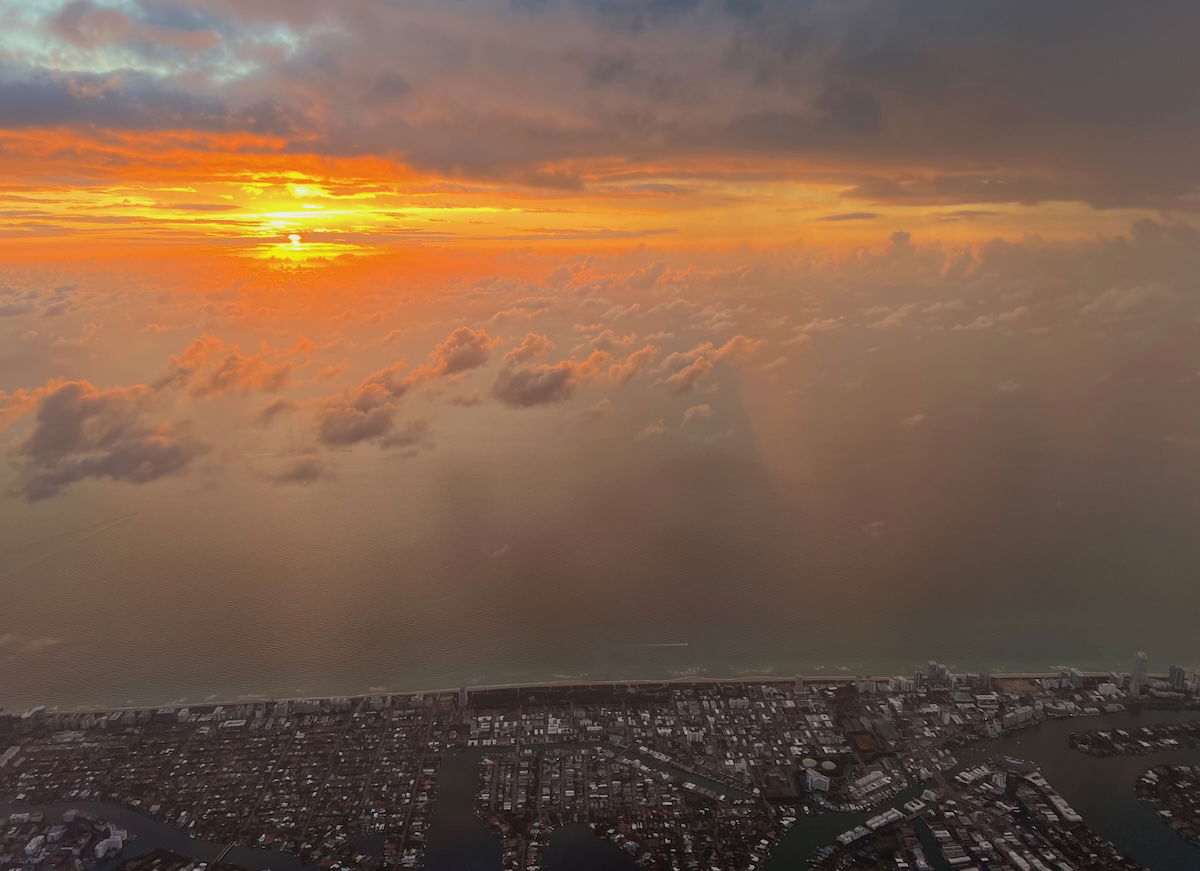
Use a credit card with travel protection
When you pay for your ticket, try to use a credit card that offers travel protection. Travel rewards cards offer all kinds of great perks, and a card with good travel protection can come in handy when things go wrong. I’m talking about coverage for trip delays, delayed or lost bags, etc.
For example, in the event that you end up misconnecting and need to spend a night somewhere, a credit card could cover the cost of your hotel stay, meals, and more.. Chase perhaps sets the standard here, with cards like the Chase Sapphire Preferred® Card (review) and Chase Sapphire Reserve® Card (review).

Put thought into your bag situation
Some people are strictly in the “carry-on only” camp. Personally I’m not quite that extreme, and there are situations where I don’t mind checking bags. Still, you should be strategic about how you pack:
- If you can, travel only with carry-on bags, so that you don’t have to risk your bag being misplaced, and don’t have to wait for your bag at baggage claim
- If you do check a bag, make sure you use Apple AirTags, in the unlikely event that your bag is misplaced
- If you check a bag, try to fly an airline that’s known for delivering bags quickly; for example, both Alaska and Delta have 20-minute baggage guarantees, so are much better than American or United
Beyond that, don’t overpack! We have a tendency to pack way more things that we need, and many people return from their trips having not even touched half of the clothes in their bag. Packing bags is a situation where “less is more.”
By the way, while I think people overpack for most things, there’s one area where they don’t pack enough — that’s snacks. Always bring some packaged snacks, because you never know when you’ll deal with major irregular operations.
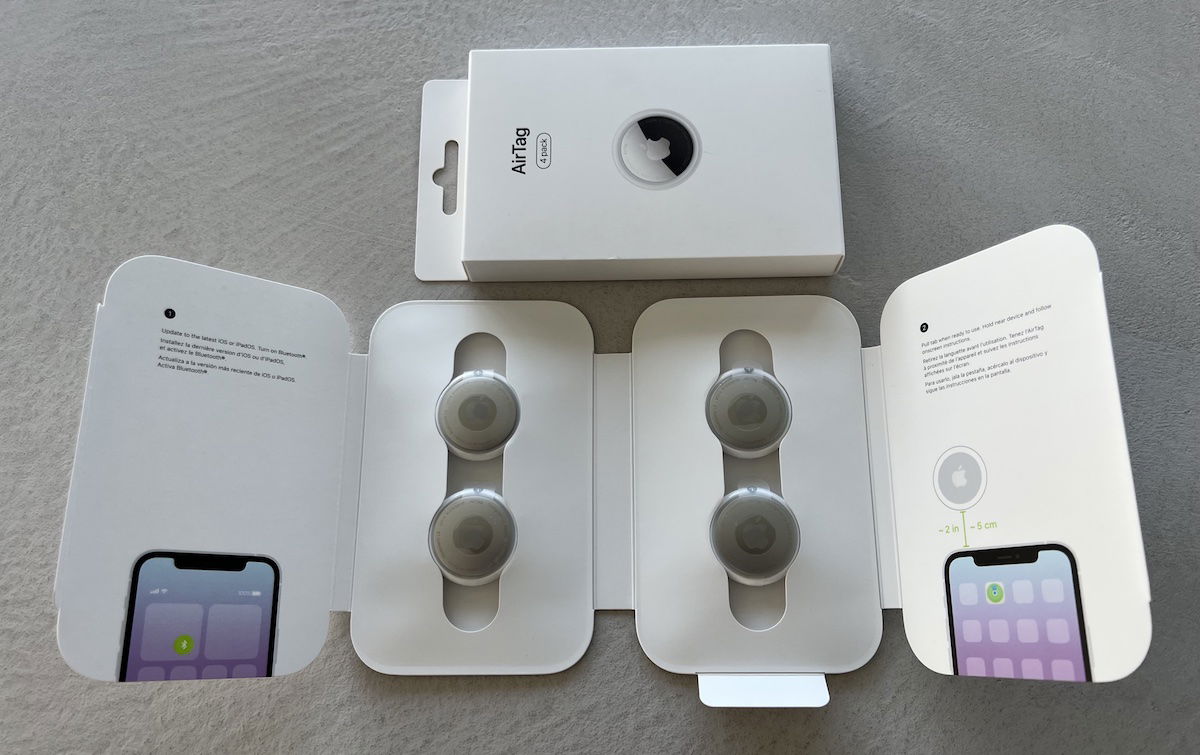
Track your flight status carefully
Nowadays there are plenty of apps and tools that will help you monitor your flight, even before you arrive at the airport. The single most important thing to track is where your inbound aircraft is. After all, without a plane able to operate your flight, you’re not going to go very far.
In some situations, airlines will directly show you inbound flight information on their websites, while in other situations, using websites or apps like Flightradar24 or FlightAware are your best bet.
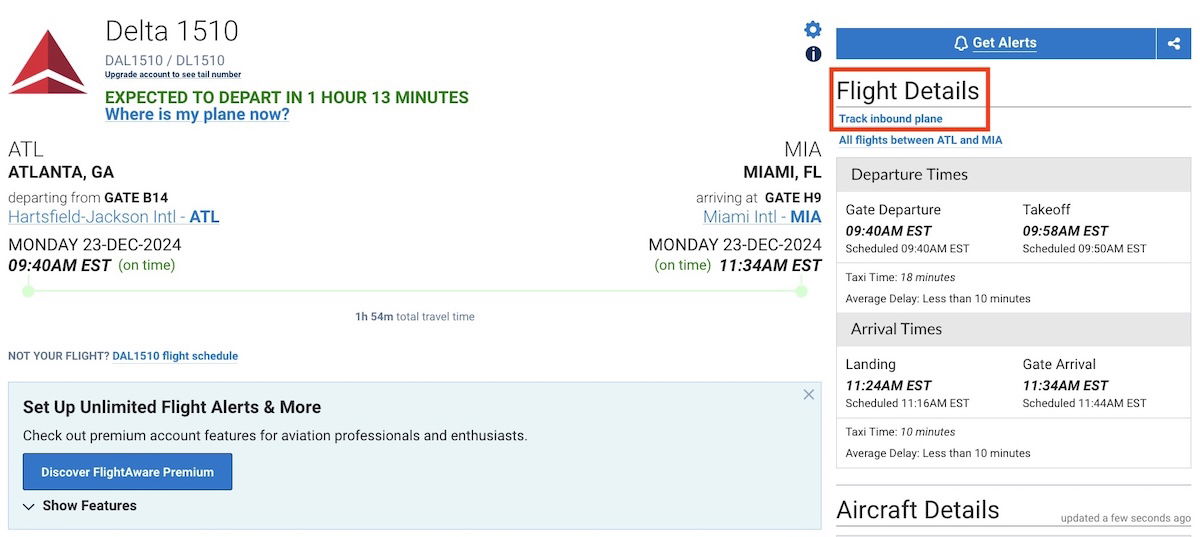
Be friendly, patient, and considerate
When you go to the airport, try to be the best version of yourself:
- Be nice to frontline airline and airport employees, especially during busy travel periods; whatever goes wrong likely isn’t their fault, and they don’t deserve your frustration
- Even selfishly, you’re almost always going to get more help from someone if you’re nice to them, rather than being rude or condescending
- Also try to be considerate of other passengers, and that includes not blasting music, videos, or phone calls, without headphones
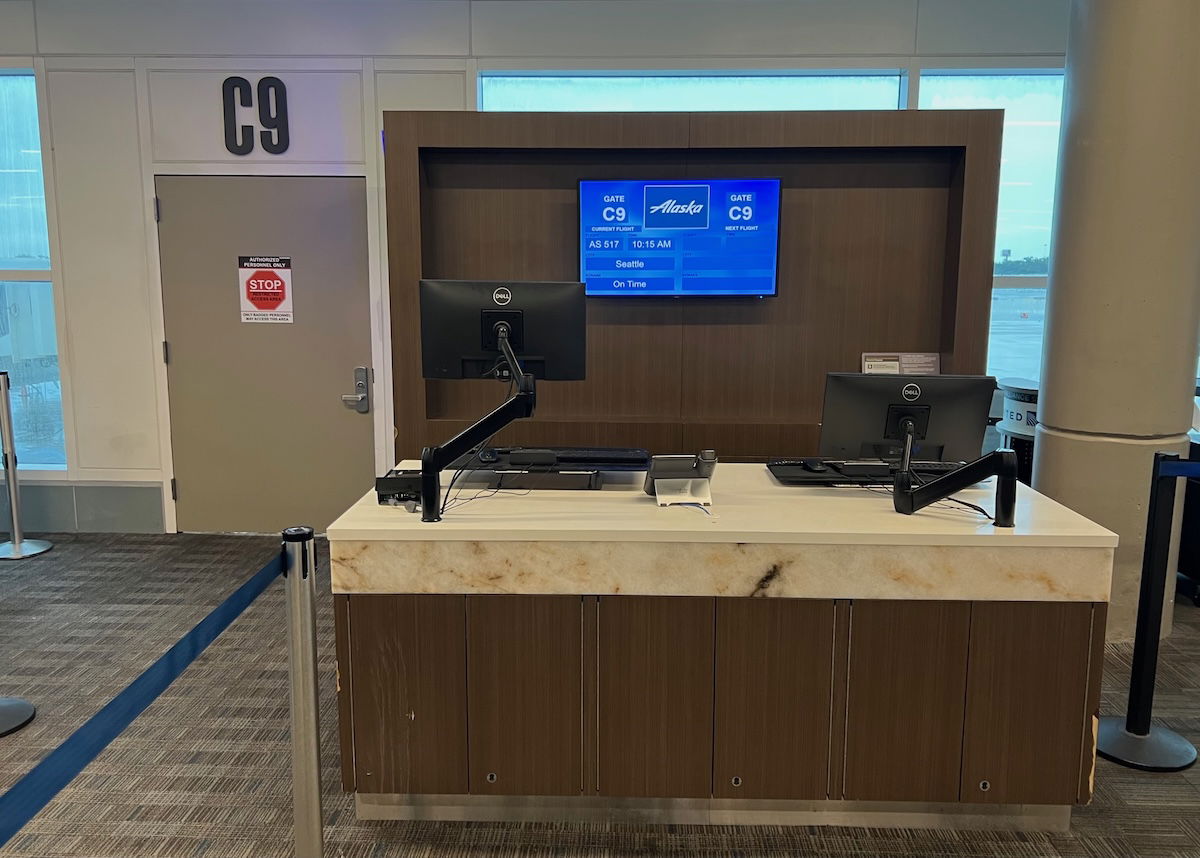
Invest in TSA PreChecK & Global Entry
There are a lot of things that have gotten better about flying over the past decade or so. One of those is the widespread availability of TSA PreCheck for clearing security, and Global Entry for clearing immigration. These programs are incredible, and really take the hassle out of both airport security and immigration.
If you’re eligible for these programs and are flying in the United States, I’d highly recommend registering. Your best bet is to get Global Entry, if eligible, since that also comes with TSA PreCheck (the inverse isn’t true).
There’s also CLEAR, which isn’t a government program — some people love it, but I find it to have limited value.
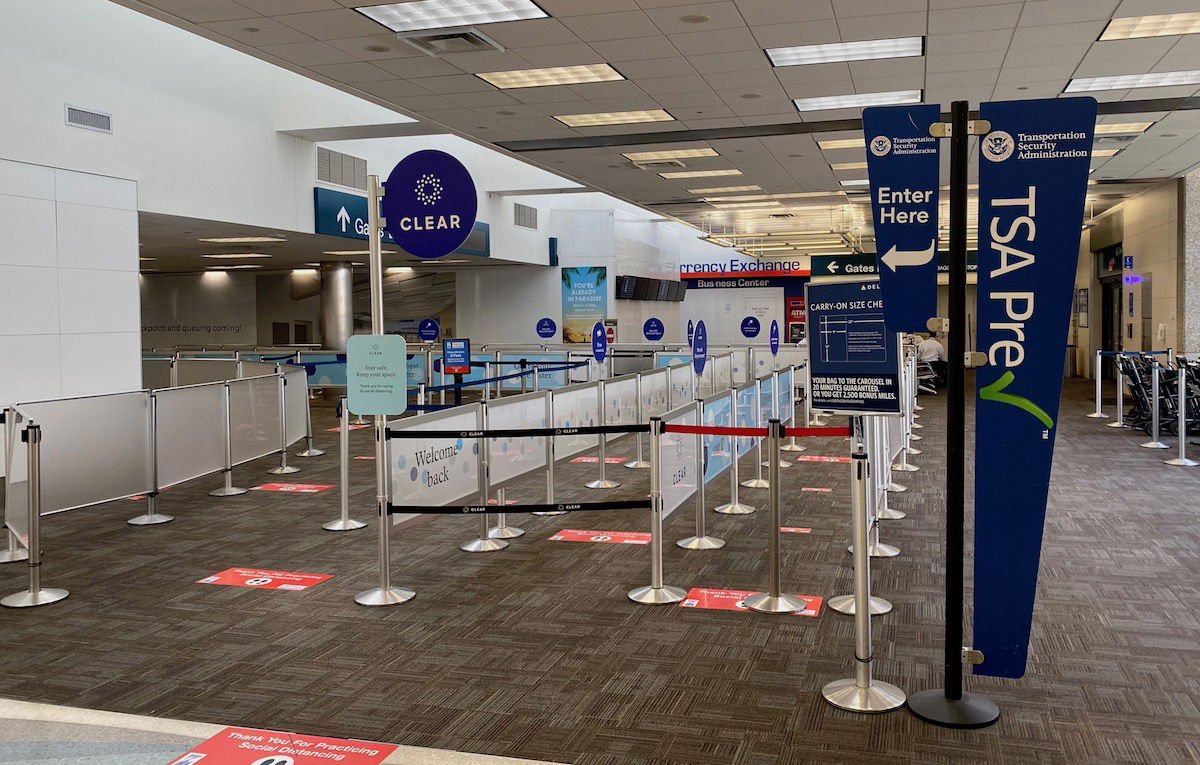
Don’t cut it close at the airport
If you travel every week for work and know exactly what you’re doing, then you’re probably not going to have any issues with cutting things very close. However, if you travel less frequently, or if you’re at airports around the holidays, leave a buffer.
Not only will it maximize your odds of actually making your flight, but it’ll also reduce your stress. Of course don’t go too over the top. Sometimes airlines will suggest arriving three or four hours before departure, and that’s usually an overkill. However, arriving 90-120 minutes before departure is generally a good idea.
There are many factors, though, ranging from whether you’re checking bags, to if you have elite status, to whether you have access to TSA PreCheck.
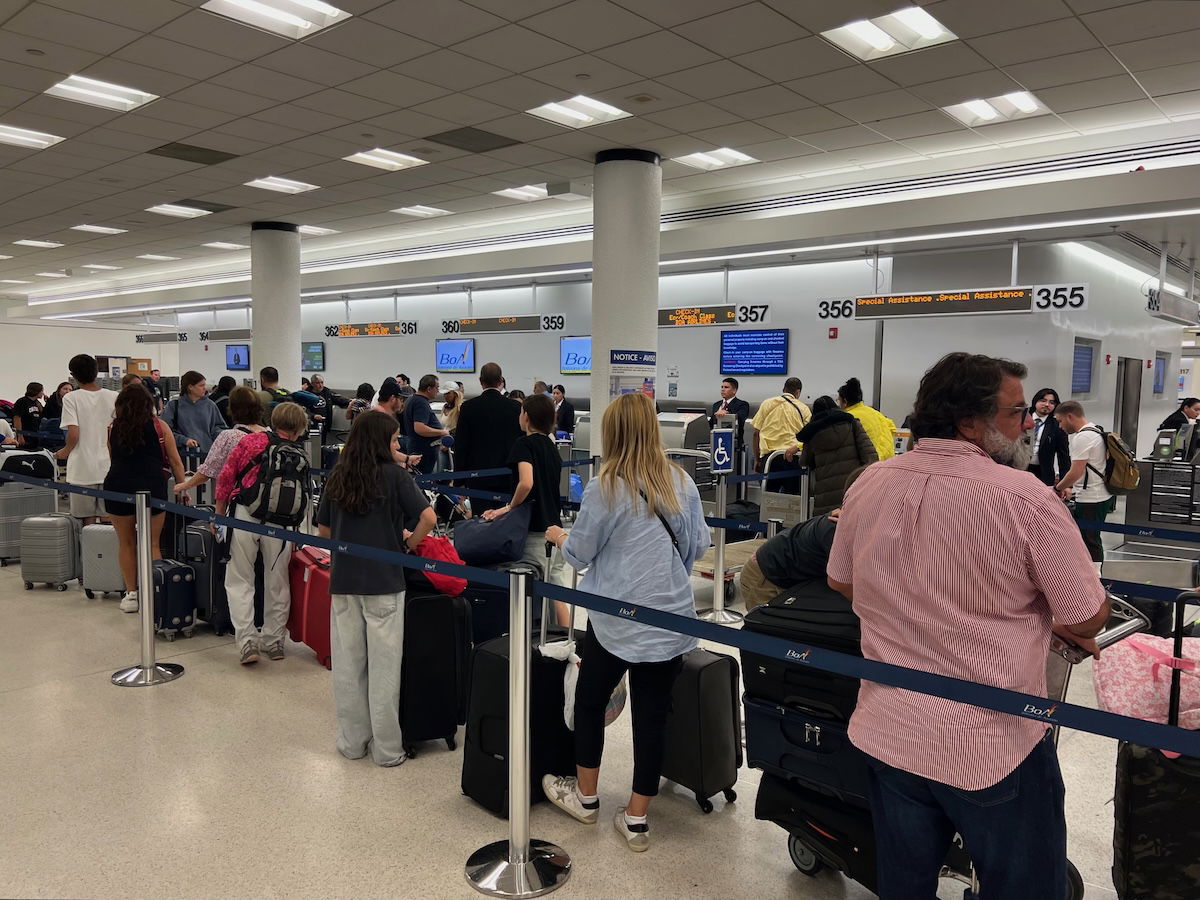
Invest in airport lounge access
You don’t have to be rich to get airport lounge access. Instead, there are lots of premium credit cards offering lounge access, and they can make your time at the airport much more pleasant.
So whether we’re talking about an airline lounge membership, or a credit card that gets you a Priority Pass™ Select membership, Amex Centurion Lounge access, Capital One Lounge access, or Chase Sapphire Lounge access, this is something worth considering.
Just to give one example of how affordable lounge access can be, the Capital One Venture X Rewards Credit Card (review) has a $395 annual fee, but that’s easily offset by a $300 annual travel credit and 10,000 anniversary bonus miles. Then you’re left with a Priority Pass™ Select membership and Capital One Lounge access.
There’s also often value to lounge access with the airline you’re flying with, whether that comes in the form of an annual membership, or buying a day pass. That’s because lounges often have dedicated airline agents who can help you in the event of irregular operations, making it easier to manage your travel when things go wrong.
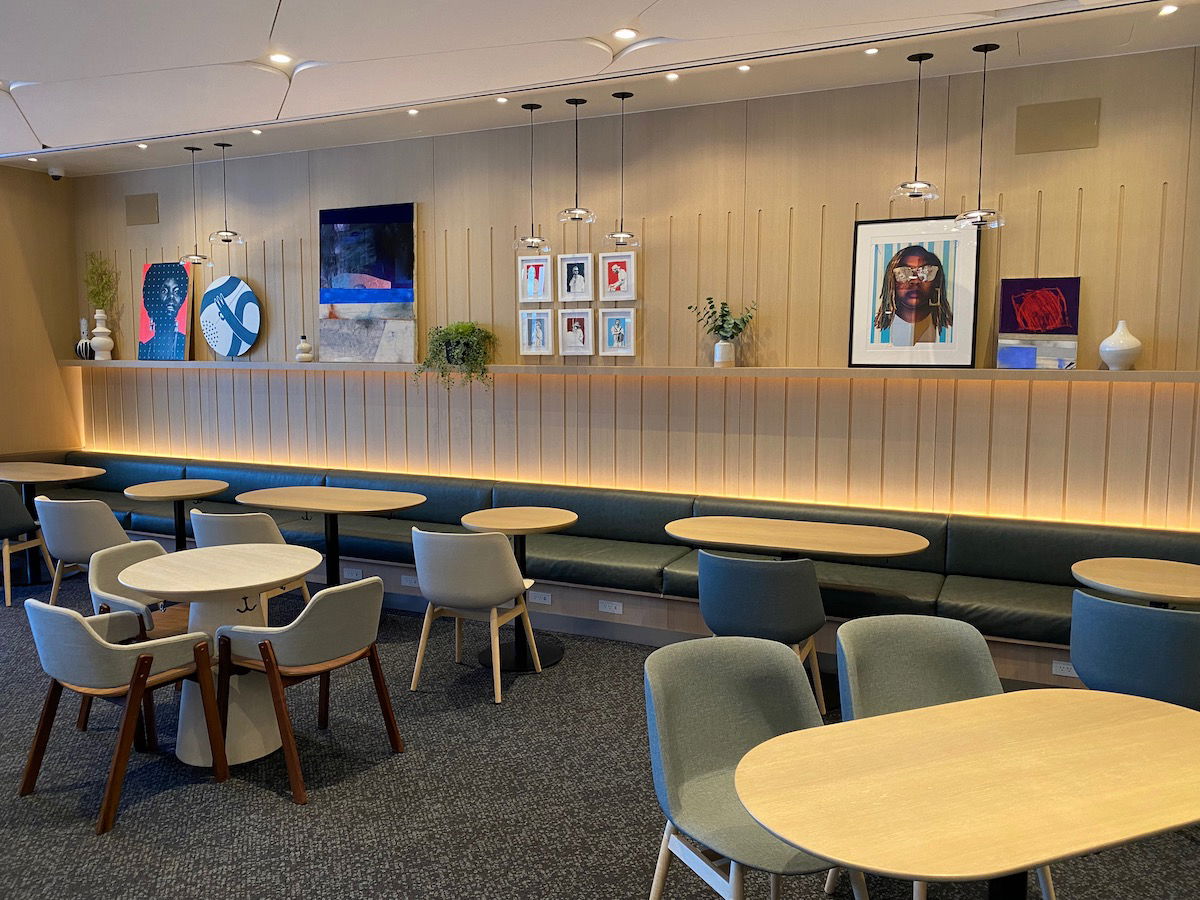
Be prepared for irregular operations
For the most part, airlines do an impressive job operating reliably, and getting people where they need to go. It’s a very complex business where safety is paramount and there are all kinds of factors airlines can’t control, so sometimes things do go wrong.
In the event of irregular operations, whether it’s a delay or cancelation, don’t panic. I’ll write a separate post about how to deal with airline irregular operations, but generally speaking, here are a few things to consider:
- Nowadays airlines have a lot of self-service options for rebooking, so don’t just stand in line waiting to speak to an agent
- Look up an airline’s policy for delayed or canceled flights (especially when it comes to refunds and duty of care), and even consider rebooking on other airlines
- Sometimes you just have to know when to cut your losses and go home; if there’s a complete meltdown at an airport, and customer service lines that are a mile long, you might just be better off going home, trying to get in touch with the airline, and starting over the next day
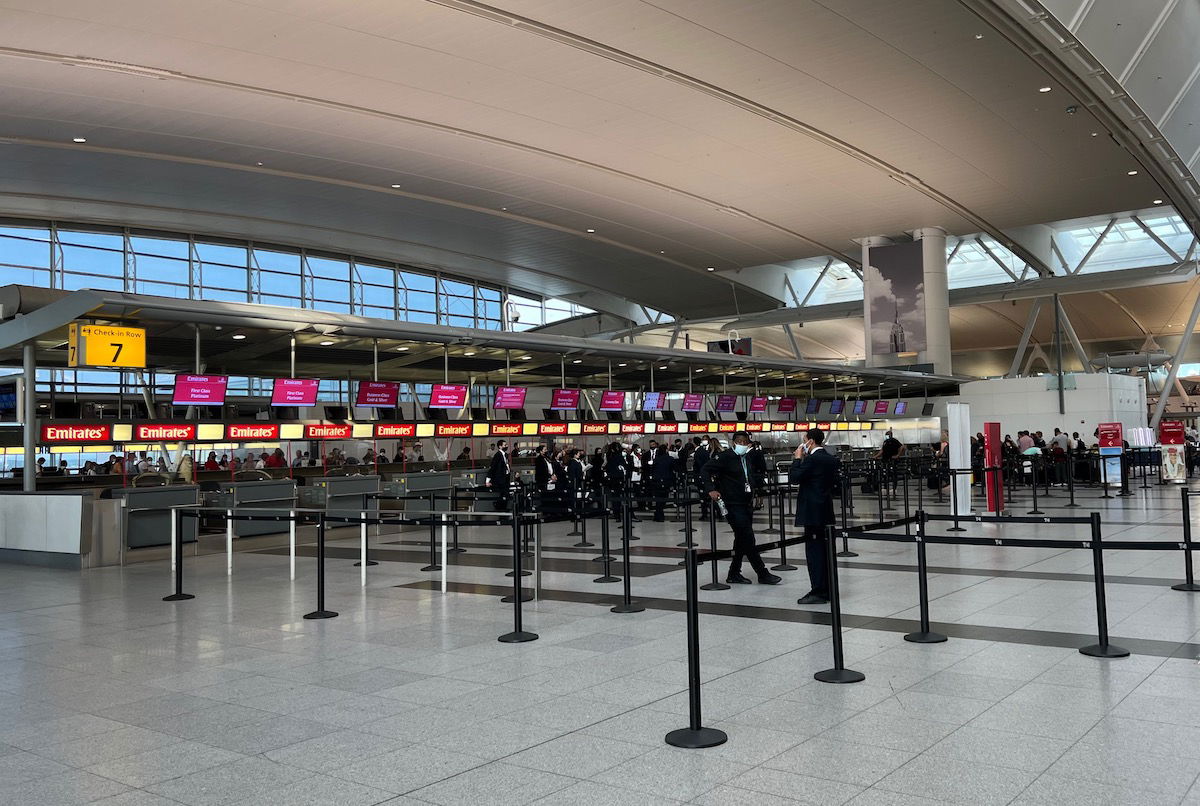
Bottom line
There’s not some magic bullet that’s suddenly going to make travel stress-free, despite the number of stories out there suggesting that may be the case. The above are my top general tips for ensuring travel goes as smoothly as possible.
I don’t think there’s anything there that’s going to be super surprising to a frequent traveler, but I still figured it made sense to consolidate some of the individual tips that I’ve shared over the years.
What are your top tips for making flying as smooth as possible, especially during busy travel periods?





I'm absolutely in the camp of using airline lounges. Since I don't always fly the same airline, I just get a day pass if I'm going to have a long delay. Besides the unlimited free food and drink and the lack of crowding, I REALLY value not having to lug my carryon to the rest room.
In my experience, I see so many people panicking and rushing needlessly due to ridiculously tight connections. Then they expect everyone to magically ‘let them off first’ when they have a window seat in row 862. Sorry, this is not my drama.
These days, we give ourselves plenty of time to connect. If we are traveling internationally and have a connection, we will often travel to the connect point the night before. This may...
In my experience, I see so many people panicking and rushing needlessly due to ridiculously tight connections. Then they expect everyone to magically ‘let them off first’ when they have a window seat in row 862. Sorry, this is not my drama.
These days, we give ourselves plenty of time to connect. If we are traveling internationally and have a connection, we will often travel to the connect point the night before. This may sound extreme, but the point is we give ourselves plenty ourselves lots of room for the unexpected.
That said, we traveled from CLT to LHR to VIE last week and all of our flights arrived early! Back in July, it took us three days to get on a flight out of CLT on our way to VCE - sometimes the stuff just hits the fan and you have to roll with it.
I just witnessed this on Saturday. Mom and teenager had a 40 min connection before their flight to Sydney (which should not be allowed to begin with). They made a big fuss until other passengers gave up their seats in the first rows of coach and switched to row 999.
Its ok to say a pray before flying.
For me, travelling in an airport, I feel like OJ in slow motion (Hertz commercials), but I feel like its an obstacle course. I don't fly in the USA much, more international. But I understand the checks and rechecks and rechecks.
Once through and on the plane, I usually fall asleep during my prayer and very rarely see take off. I wake up after a nice nap...
Its ok to say a pray before flying.
For me, travelling in an airport, I feel like OJ in slow motion (Hertz commercials), but I feel like its an obstacle course. I don't fly in the USA much, more international. But I understand the checks and rechecks and rechecks.
Once through and on the plane, I usually fall asleep during my prayer and very rarely see take off. I wake up after a nice nap in the clouds.
It is indeed a stressful experience, and thus the nap takes the edge off.
It always good to be nice to others.
1) traveling carry-on only is only helpful if you board in the first few groups. If you don't have early boarding, it's a crapshoot whether or not you're going to have to gate check your bag. More often than not these days, when you gate check your bag, you have to get it at the luggage carousel at your destination
2) I'm not so sure that lounge access is a great way to avoid the...
1) traveling carry-on only is only helpful if you board in the first few groups. If you don't have early boarding, it's a crapshoot whether or not you're going to have to gate check your bag. More often than not these days, when you gate check your bag, you have to get it at the luggage carousel at your destination
2) I'm not so sure that lounge access is a great way to avoid the stresses of an airport, given how overcrowded lounges are these days. And that assumes you can even get into the lounge in the first place and it's not full
Ben can't say this but I will: Avoid LCCs if at all possible. When your plane goes mechanical, you want a carrier with a huge fleet, not a carrier with 99.99999% fleet utilization. Canadians know what I'm saying, with stories every winter about innocent civilians stuck in Montego Bay or Puerto Plata waiting for the latest LCC to find a way to go get them. I guess this advice applies more in Canada and Europe...
Ben can't say this but I will: Avoid LCCs if at all possible. When your plane goes mechanical, you want a carrier with a huge fleet, not a carrier with 99.99999% fleet utilization. Canadians know what I'm saying, with stories every winter about innocent civilians stuck in Montego Bay or Puerto Plata waiting for the latest LCC to find a way to go get them. I guess this advice applies more in Canada and Europe than in the US, where even Spirit and Fronteir have larger fleets. Canadians: never fly Flair!
The best advice I found here is about leaving enough connection timing. Delta seems to be the WORST when it comes to short connection times (e.g., 10 minutes* in ATL? Yeah...NO), and it can be difficult to find two-to-three hour connection times.
For my last trip to San Francisco recently (literally yesterday), my DL flight out of DCA was 80 minutes late. Because I booked an almost three-hour connection time in my transfer airport,...
The best advice I found here is about leaving enough connection timing. Delta seems to be the WORST when it comes to short connection times (e.g., 10 minutes* in ATL? Yeah...NO), and it can be difficult to find two-to-three hour connection times.
For my last trip to San Francisco recently (literally yesterday), my DL flight out of DCA was 80 minutes late. Because I booked an almost three-hour connection time in my transfer airport, I still had enough padding to take my time getting to the lounge, and then from the lounge to the gate.
Pad your transfer times!
*No, not literally 10 minutes, but I'm illustrating a point here.
If you live near the Canadian border, get a NEXUS card. It not only expedites your land crossing at the Canadian border, but also gets you Global Entry and TSA PreCheck. And it's less expensive.
All the stuff about not checking bags is either trolling or attributable to people who don't travel with much frequency. I am not sure how they can fit clothes for 3 seasons within a carry-on bag weighing less than 10kg (just picking a tame number and not talking about the security officers at APL who weren't going to let anyone through with hand baggage weighing over 7kg), but I bet that there aren't too many...
All the stuff about not checking bags is either trolling or attributable to people who don't travel with much frequency. I am not sure how they can fit clothes for 3 seasons within a carry-on bag weighing less than 10kg (just picking a tame number and not talking about the security officers at APL who weren't going to let anyone through with hand baggage weighing over 7kg), but I bet that there aren't too many people who can emulate them. Similarly, all the bits about global entry whatever are only relevant to one country. I'm not about to share all my personal details with a bunch of questionable government agencies just so that I can experience the lousy AA service after having had to recheck my luggage
I travel with significant frequency and avoid checking bags whenever possible. But I travel primarily within the US and North America where I don't need to worry about hand baggage weight, or really even size anymore. With the bins now where the bag goes on it's side I've been able to fit in some truly large bags. If my bags had to be under 10kg I'd be screwed!
Once you are past the check-in agent and have BP in hand, bag weight is not an issue. Never had a drama with say, a 10kg carry-on, but I generally go Business at least so maybe that helps.
Like I said, I have been to an airport where the authorities literally won't allow you to go through security if your hand luggage exceeds 7kg. AF run a similar setup at CDG, revising hand luggage weight for all Y pax just before security control- I turned up 45 minutes before my flight on an overnight connection (with boarding pass in hand and another bag in the hold checked in from my origin) and was...
Like I said, I have been to an airport where the authorities literally won't allow you to go through security if your hand luggage exceeds 7kg. AF run a similar setup at CDG, revising hand luggage weight for all Y pax just before security control- I turned up 45 minutes before my flight on an overnight connection (with boarding pass in hand and another bag in the hold checked in from my origin) and was told that I couldn't take it with me and that it was too late to check it in!
I have also flown with an airline which limited it to 5kg (!)- and it was single class so you couldn't take more with you by buying an expensive ticket. Needless to say, I have more than once had my hand luggage weighed by airline staff at the boarding gate (A3 at ATH do this regularly).
Of course, these things don't happen every single time, and lots of airlines take a more lenient approach to those of us who hold shiny cards. However, as the AF example shows, non-compliance may cause significant complications to one's travel plans (or, at the very least, having to have a massive argument in an attempt to minimise disruption).
North America is obviously different. While a total lack of weight limits is probably no more clever than imposing the ridiculously low ones mentioned above (I wouldn't fancy sitting on an aisle seat and having a 20kg object land on my shoulder), it does incentivise passengers to refrain from checking stuff in, particularly as it's combined with pretty stingy luggage allowances (I flew UA domestic a few months ago, bought the most flexible/expensive fare type in Y and it still came without any luggage included).
Agreed. I've done carry-on maybe three times in my life and it was a miserable experience. Unless I'm only going for a night or two, checked bag is so much more comfortable. I can have spares of whatever I want, carry some backup items which may come handy on the trip, take as much liquids as I like (and buy some local wine/beer on my way back), unpacking at security takes me literally 15 seconds...
Agreed. I've done carry-on maybe three times in my life and it was a miserable experience. Unless I'm only going for a night or two, checked bag is so much more comfortable. I can have spares of whatever I want, carry some backup items which may come handy on the trip, take as much liquids as I like (and buy some local wine/beer on my way back), unpacking at security takes me literally 15 seconds and I don't have to fight for space in overhead bins. I really can't see what could I possibly gain by going carry-on only. Maybe if I lived near an airport with long bag delivery times (e.g. LHR), I'd change my mind, but for most part the benefits of checked bag far outweigh "benefits" of carry-ons.
I fly airlines in StarAlliance, Skyteam or oneworld and I never, ever check a bag. I take the maximum permissible carry-on (9" x 14" x 22"), one backpack and a grocery bag. I often leave toronto and go to SE Asia for a month with this amount of luggage. I am not a troll. And I cannot count on one hand the number of times a uniformed airline employee, deciding whether to grant my request...
I fly airlines in StarAlliance, Skyteam or oneworld and I never, ever check a bag. I take the maximum permissible carry-on (9" x 14" x 22"), one backpack and a grocery bag. I often leave toronto and go to SE Asia for a month with this amount of luggage. I am not a troll. And I cannot count on one hand the number of times a uniformed airline employee, deciding whether to grant my request about a IRROPS issue, asked "have you checked a bag?". The answer "no" opens the gates to the Promised Land.
The critical bit that you left out is how much these things weigh. You can undoubtedly cram a lot of things into a full-size carry on bag. Continuing with the Aegean example from my previous comment. They're a full Star Alliance member and their carry on weight limit in Y is 8kg (they, like SAS in Skyteam, also have fares that wouldn't even allow you to travel with both a rollaboard and a backpack, but...
The critical bit that you left out is how much these things weigh. You can undoubtedly cram a lot of things into a full-size carry on bag. Continuing with the Aegean example from my previous comment. They're a full Star Alliance member and their carry on weight limit in Y is 8kg (they, like SAS in Skyteam, also have fares that wouldn't even allow you to travel with both a rollaboard and a backpack, but let's assume that you don't buy those fares). The aluminium rollaboard I used for my last trip weighs 4.2kg empty, leaving me with just 3.8 to play with if I want to be compliant.
If you do manage to travel for a month while carrying less than 4 kilos' worth of stuff plus a few extra bits in a backpack, I am sure that I won't be alone in being grateful for any packing tips that you're up for sharing.
This is a good article. Is there a way that you can write it happen in a more jewish style, like how to best travel if you're a jew? I wonder if some of these things apply - I think they do - but I think there might be some other interesting additions that you can make to this list with things like how avoid a seat assignment next to a woman, and also how to deal with being considerate when needing to pray while on the flight. Thanks :)
None of Jews I know have these issues.
What techniques do they adopt, then? I have a friend who is constantly stressed about sitting next to a woman and also has been told off for congregating in the back area of the planes to discuss matters with fellow traveling partners who are seated away from him. It seems like something that should be published or at least available for those who search online for a solution to determine appropriate airline/flight choice.
We went to Egypt in February of this year (2024), first a two week organized tour (planes and mini busses), then two weeks on our own. The best advice we received was to bring snacks. Since I know that I need a protein heavy snack, we went to Costco and bought their individually packaged nut snack packs. We were so glad that we did, because a couple of times it was a LONG time between...
We went to Egypt in February of this year (2024), first a two week organized tour (planes and mini busses), then two weeks on our own. The best advice we received was to bring snacks. Since I know that I need a protein heavy snack, we went to Costco and bought their individually packaged nut snack packs. We were so glad that we did, because a couple of times it was a LONG time between breakfast and lunch (or lunch and dinner). And having that snack made a difference in my outlook, for sure! I always bring snacks in my carry on for a flight - you just never know what could happen, and if I have food I can deal with pretty much anything!
Thanks, Ben!
It might just be me older, but there seem to be more angry and rude people. I feel sad for them. Modern travel is a miracle.
One more thing. If you don't like the seat you are in, keep checking the seating options. I just changed a non desirable seat for one that's great! People do cancel.
Overpacking is the way to go, lol. Maybe I'll change my opinion with age but so far, in my early 30s, I don't have a problem carrying one 15 kg suitcase and that covers everything I need + a few back up items I don't need 95% of the time, but just might, and occasionally they come incredibly handy.
Also, don't do carry-ons, they're the best way to make a trip miserable. I check everything...
Overpacking is the way to go, lol. Maybe I'll change my opinion with age but so far, in my early 30s, I don't have a problem carrying one 15 kg suitcase and that covers everything I need + a few back up items I don't need 95% of the time, but just might, and occasionally they come incredibly handy.
Also, don't do carry-ons, they're the best way to make a trip miserable. I check everything except a small backpack with essentials for 2 days just in case my bag gets delayed. All those people rearranging their stuff at security, desperately searching for space in the overhead bins, and taking 15 mins to get them out upon landing, that could be you - or you can "overpack", check it in the hold and have a relaxed journey. Unless you're flying to some hellish aiport like LHR where baggage delivery often takes around half an hour or more, this is a much better way to handle baggage. No limits & no stress.
I’m with you! Travel is about minimizing stress. I hand over my suitcase (sometimes only half full) and then a free to wander around the airport and board the plane unencumbered or fighting for bin space. My oddity is to take my slippers on longer flights and put them on for the duration.
Same here - I used to always do carry-on only and now I almost always check a bag. I find it much less stressful and much less of a hassle to be able to drop off my bag and wander around the airport unencumbered and without having to worry about getting on the plane early in order to secure overhead space. I also enjoy being able to take some items that aren’t necessary (like slippers)...
Same here - I used to always do carry-on only and now I almost always check a bag. I find it much less stressful and much less of a hassle to be able to drop off my bag and wander around the airport unencumbered and without having to worry about getting on the plane early in order to secure overhead space. I also enjoy being able to take some items that aren’t necessary (like slippers) but are enjoyable to have.
Of course, there are exceptions, but overall I’d rather check a bag.
wow I would be stressed if I were to do all those things that you do. For me
1. TSA Pre
2. Carry on only
3. As often as possible, I pack clothes that I planned to throw in the trash for various reasons. I wear them on my trip and discard them there.
4. A lounge is necessary only between connecting flights. At the start of trips, I get to...
wow I would be stressed if I were to do all those things that you do. For me
1. TSA Pre
2. Carry on only
3. As often as possible, I pack clothes that I planned to throw in the trash for various reasons. I wear them on my trip and discard them there.
4. A lounge is necessary only between connecting flights. At the start of trips, I get to the airport no earlier than 45 mins before flight. I do make exceptions when there is a good lounge at the start of the trip.
5. I do all possible to avoid children, teens and businessmen "negotiating multimillion dollar deals" at the top of their voices.
6. Earbuds to tone down the incessant noises.
Travel safe everyone...
Bro, #3, wtf??
Hear, hear to #5
Agree with #3 re clothes. I check through my wardrobe and pick out things I am out of love with, some which may be in need of some TLC, etc. Give them a wash and press plus a stitch or 2 if needed and they're ready for their last rodeo.
Amusingly, on my last trip to Palermo Italy I got a text from the hotel I'd checked out of to say that housekeeping had...
Agree with #3 re clothes. I check through my wardrobe and pick out things I am out of love with, some which may be in need of some TLC, etc. Give them a wash and press plus a stitch or 2 if needed and they're ready for their last rodeo.
Amusingly, on my last trip to Palermo Italy I got a text from the hotel I'd checked out of to say that housekeeping had found some clothes I'd maybe forgotten, and would I like them to send them on to me. I replied no, and they could dispose of them as they saw fit.
Ironically, quite different on the few occassions I had accidently left something I valued in hotels where "so sorry, housekeeping could not locate your XXXX" was the response.
If you get a notice that your flight is, say, 2 hours late, do you still go to the airport and operate as if it might change back to on time, or do you just stay home/ at the hotel and go about your plans around the new flight time?
1. Get to the airport early, or at least with an additional 30 minute buffer
2. Never, ever check bags
3. Pre Check, maybe, at large airports it doesn't seem to save much time but for the $100 (or whatever it is if you don't have it reimbursed by a cc) still might have some usefulness
4. Always monitor your incoming plane. I start with the plane's first flight of the day...
1. Get to the airport early, or at least with an additional 30 minute buffer
2. Never, ever check bags
3. Pre Check, maybe, at large airports it doesn't seem to save much time but for the $100 (or whatever it is if you don't have it reimbursed by a cc) still might have some usefulness
4. Always monitor your incoming plane. I start with the plane's first flight of the day and set up alerts. If time allows I go into the app and check the ongoing status
5. If delays/cancellation look possible do your own research to gather options. Don't wait for a flight to actually post a delay or cancellation. I do this so that if I need to make a move I know exactly to what. (And another reason not to check bags, it will only complicate matters)
6. Be kind to those trying to assist you. Adhering to number 5 will go a long, long way. The majority of times the person will reroute you as requested just to get you out of their face.
I never purchase travel insurance (I think it's on my cc cards though) and because I'm proactive in the past two years I've been stuck exactly one time requiring an overnight stay, out of the airline's control.
One last thing, if the airline owes lodging and you're a member of an airline club and there's an open club at the airport have them book you a hotel. They have multiple options to offer.
Under "Be friendly, patient, and considerate", it's worth adding "PLEASE monitor your children, especially if they're punching or kicking other passengers' seats or misbehaving towards fellow passengers or staff in any other way."
Travel this week is the best with tsa pre check , priority , etc. There is no business travel. The main lines are packed ; walk by all the haters and save 20 minutes.
TSA Pre check can be crowded too. I think, it took me 20 minutes to get through security in SEA on weekday morning last week. Queue was like a snake.
My rule is to be 2h before the flights at the airport. It worked pretty well for me in the past. Got stuck at LHR T5 security for good 20 minutes at the beginning of December.
The lounges with easy access to the non-business traveler will be the most chaotic lounges. The DFW AA Flagship Lounge / Capital One Louge entrance is a good example of problematic lounges. People go in and out of the AA Flagship Lounge without issue but the Capital One visitors are waiting in line. The Capital One visitors are not happy people. I wish the AA Flagship Lounge did not share an entrance with the Capital...
The lounges with easy access to the non-business traveler will be the most chaotic lounges. The DFW AA Flagship Lounge / Capital One Louge entrance is a good example of problematic lounges. People go in and out of the AA Flagship Lounge without issue but the Capital One visitors are waiting in line. The Capital One visitors are not happy people. I wish the AA Flagship Lounge did not share an entrance with the Capital One Lounge.
Lounge access or access on the busiest days of the year isn't ideal.
“Be friendly, patient, and considerate” sadly is a tall ask for people who are already emotionally dysregulated on a normal day let alone traveling during the holidays. I think tending to one’s mental health and general wellness deserves its own bullet point. Mindfulness and breathwork practices are hugely valuable and freely accessible to anyone, and can counteract stress-induced cortisol. Some folks may need medication to help cope. Otherwise, properly hydrate throughout the day and try...
“Be friendly, patient, and considerate” sadly is a tall ask for people who are already emotionally dysregulated on a normal day let alone traveling during the holidays. I think tending to one’s mental health and general wellness deserves its own bullet point. Mindfulness and breathwork practices are hugely valuable and freely accessible to anyone, and can counteract stress-induced cortisol. Some folks may need medication to help cope. Otherwise, properly hydrate throughout the day and try to limit caffeine and alcohol intake.
Smile.
You’re more likely to be upgraded to first class and business. Especially the 2nd night of hannukah on the jfk lax transcon route. All the Jewish bankers are at home for the holidays. Easy upgrade. You’re welcome.
So your winning smile gets you upgraded to J or F? Wow, why didn't I think of that?
I guess you're dressed nicely, and impeccably groomed too?
I read somewhere that that's a surefire way to score an upgrade.